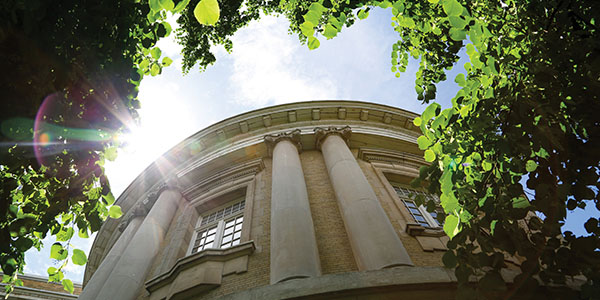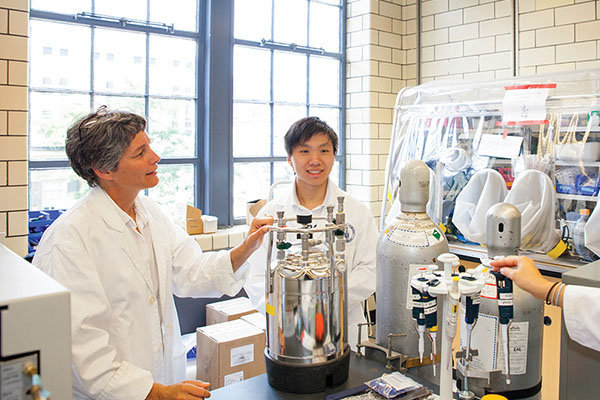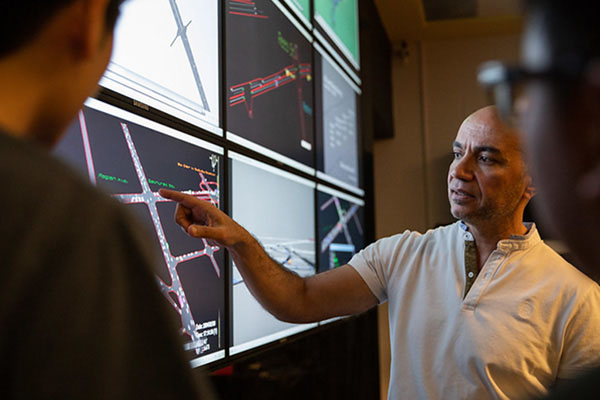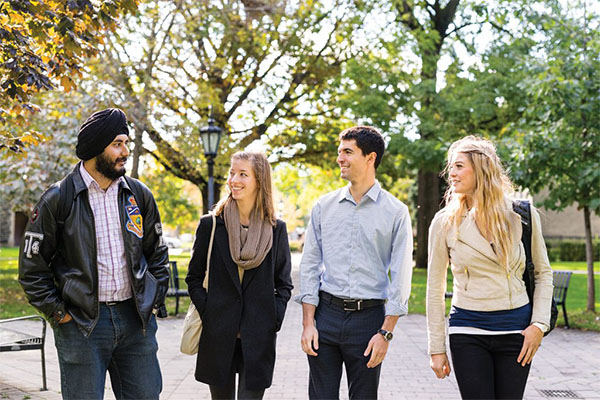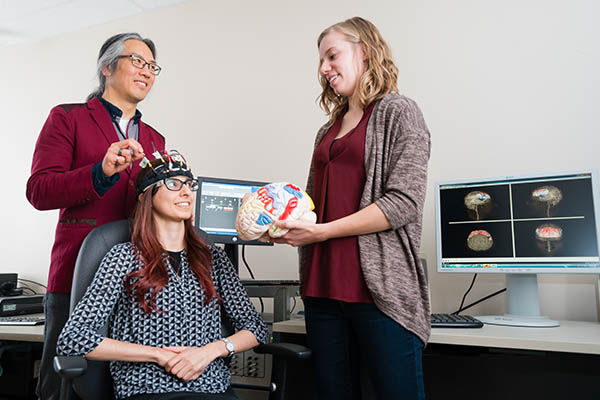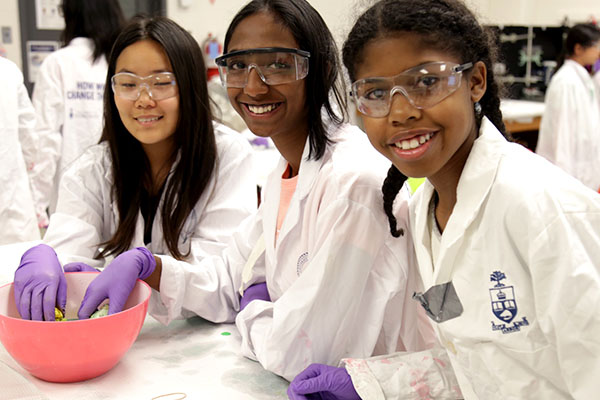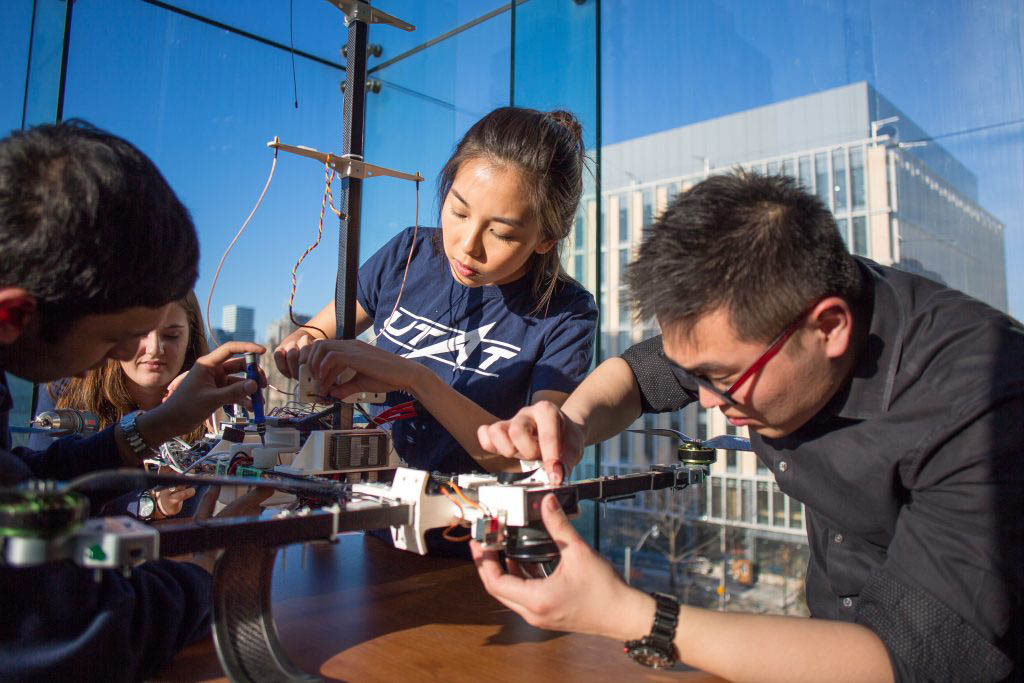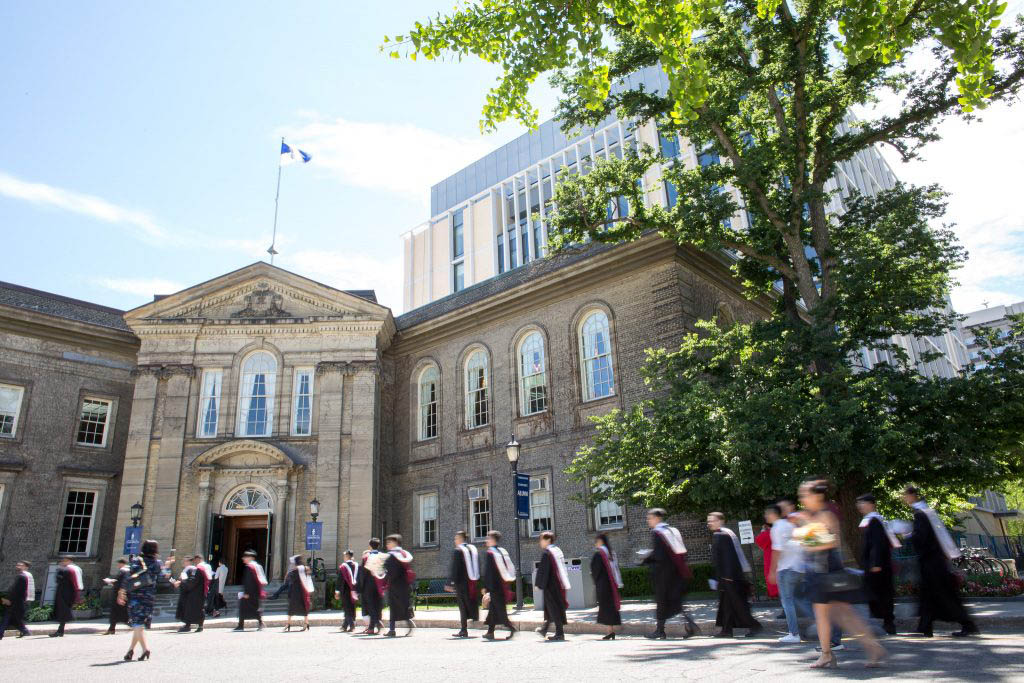Abstract:
Talking to Cells: Biomolecular Engineering for Non-Invasive Imaging and Control of Cellular Function
The study of biological function in intact organisms and the development of targeted cellular therapeutics necessitate methods to image and control cellular function in vivo. Technologies such as fluorescent proteins and optogenetics serve this purpose in small, translucent specimens, but are limited by the poor penetration of light into deeper tissues. In contrast, most non-invasive techniques such as ultrasound and magnetic resonance imaging – while based on energy forms that penetrate tissue effectively – are not effectively coupled to cellular function. Our work attempts to bridge this gap by engineering biomolecules with the appropriate physical properties to interact with magnetic fields and sound waves. In this talk, I will describe our recent development of biomolecular reporters and actuators for ultrasound and magnetic resonance imaging. The reporters are based on a unique class of gas-filled protein nanostructures from buoyant photosynthetic microbes. These proteins produce nonlinear scattering of sound waves, enabling their detection with ultrasound, and perturb magnetic fields, allowing their detection with MRI. I will describe our recent progress in understanding the biophysical and acoustic properties of these biomolecules, engineering their mechanics and targeting at the genetic level, developing methods to enhance their detection in vivo and expressing them heterologously as reporter genes. Our actuators are based on temperature-dependent transcriptional repressors, which provide switch-like control of bacterial gene expression in response to small changes in temperature. We have genetically tuned these repressors to activate at thresholds within the biomedically relevant range of 32ºC to 46ºC, and constructed genetic logic circuits to connect thermal signals to various cellular functions. This allows us to use focused ultrasound to remote-control engineered bacterial cells in vivo. In addition, we have used ultrasound in combination with viral vectors and engineered receptors to provide spatially and cell-type specific non-invasive control over neural activity.
Interested in meeting the speaker in person? Sign up for lunch here. There are limited number of spots, you will be admitted based on first-come-first-serve basis.

CANCELLED Mikhail Shapiro- Biomedical Engineering Invited Seminar
CANCELLED Mikhail Shapiro- Biomedical Engineering Invited Seminar
Event Details
April 14, 2020 @ 12:00 pm - 1:00 pm
Sandford Fleming Building Room SF1101 @ 10 King’s College Road, Room SF1101
Abstract:
Talking to Cells: Biomolecular Engineering for Non-Invasive Imaging and Control of Cellular Function
The study of biological function in intact organisms and the development of targeted cellular therapeutics necessitate methods to image and control cellular function in vivo. Technologies such as fluorescent proteins and optogenetics serve this purpose in small, translucent specimens, but are limited by the poor penetration of light into deeper tissues. In contrast, most non-invasive techniques such as ultrasound and magnetic resonance imaging – while based on energy forms that penetrate tissue effectively – are not effectively coupled to cellular function. Our work attempts to bridge this gap by engineering biomolecules with the appropriate physical properties to interact with magnetic fields and sound waves. In this talk, I will describe our recent development of biomolecular reporters and actuators for ultrasound and magnetic resonance imaging. The reporters are based on a unique class of gas-filled protein nanostructures from buoyant photosynthetic microbes. These proteins produce nonlinear scattering of sound waves, enabling their detection with ultrasound, and perturb magnetic fields, allowing their detection with MRI. I will describe our recent progress in understanding the biophysical and acoustic properties of these biomolecules, engineering their mechanics and targeting at the genetic level, developing methods to enhance their detection in vivo and expressing them heterologously as reporter genes. Our actuators are based on temperature-dependent transcriptional repressors, which provide switch-like control of bacterial gene expression in response to small changes in temperature. We have genetically tuned these repressors to activate at thresholds within the biomedically relevant range of 32ºC to 46ºC, and constructed genetic logic circuits to connect thermal signals to various cellular functions. This allows us to use focused ultrasound to remote-control engineered bacterial cells in vivo. In addition, we have used ultrasound in combination with viral vectors and engineered receptors to provide spatially and cell-type specific non-invasive control over neural activity.
Interested in meeting the speaker in person? Sign up for lunch here. There are limited number of spots, you will be admitted based on first-come-first-serve basis.
Upcoming Events
- All
- Alumni events
- Anti-Racism and Cultural Diversity Office events
- Convocation events
- Faculty & staff events
- Info sessions
- Lectures, seminars and workshops
- Socials
- U of T holidays & closures



